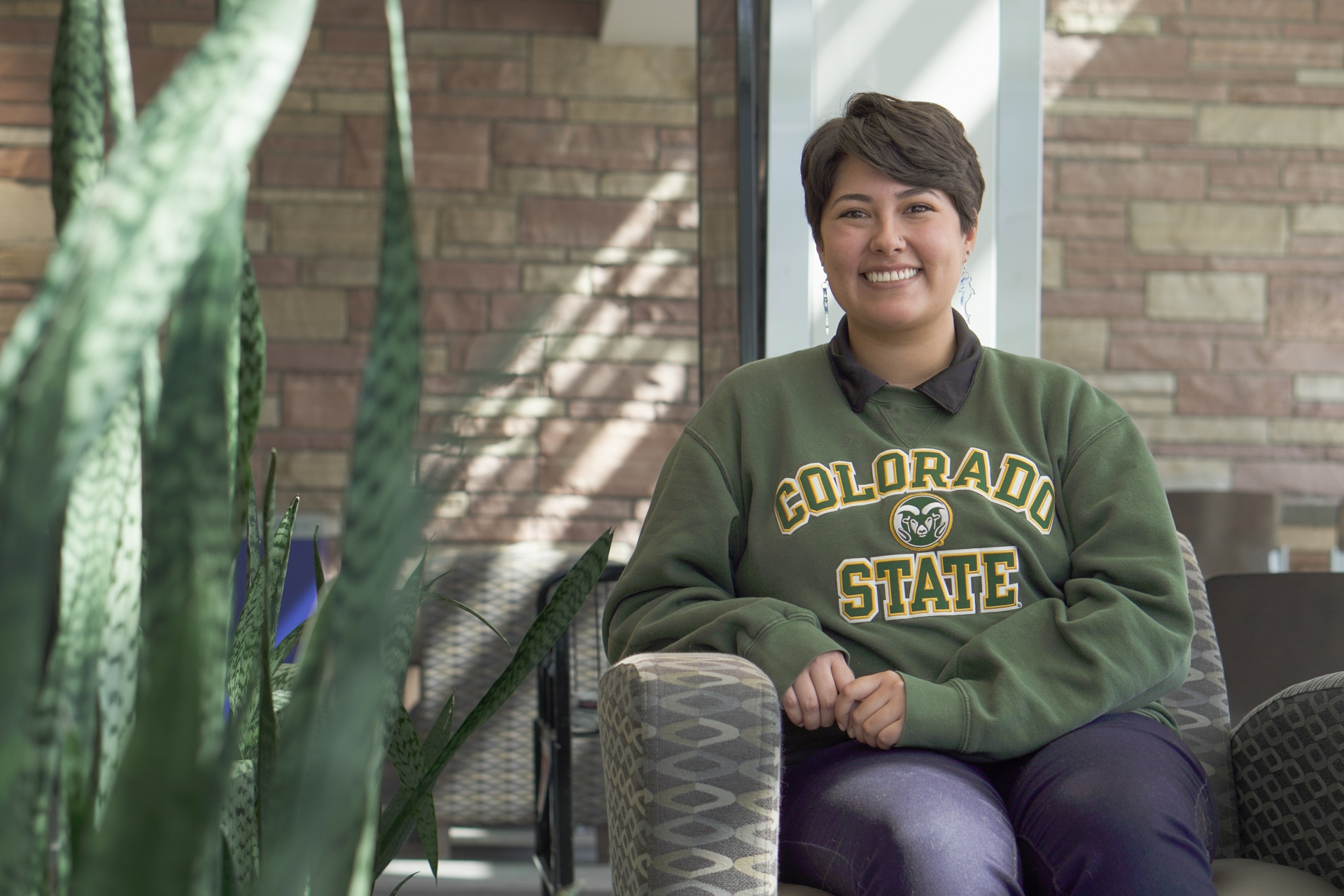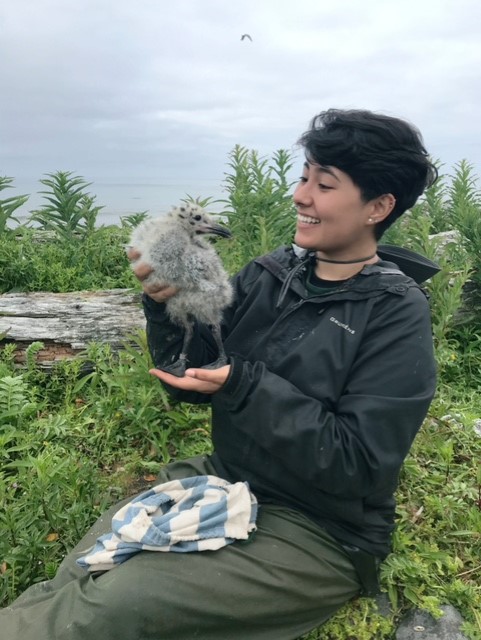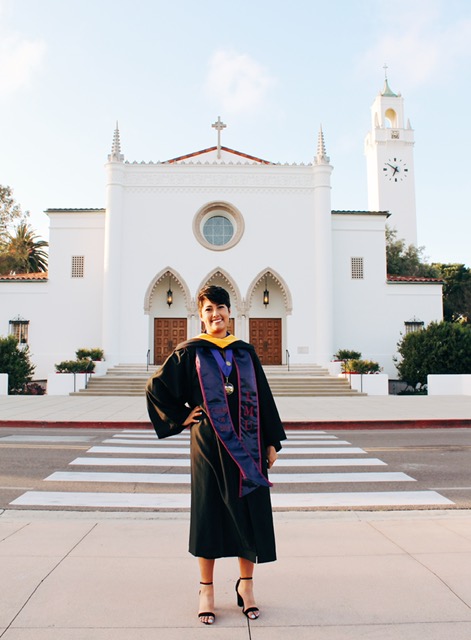
For Melissa (Mel) Morado, a first-year master’s student in the Graduate Degree Program in Ecology in the Department of Biology at Colorado State University, personal growth reflects in her scientific life, and scientific growth reflects in her personal life.
“Who I was in August 2021 when I started at CSU … I see myself now as a completely different individual,” she said. “Being in an academic environment, where we are all asking questions and thinking critically, where we can discuss with professors in the top of their field … I feel like my understanding of and patience with myself has improved so much.”
Morado discovered her interest in science at a young age. For years, she thought she might be a veterinarian. Then she thought she’d be a field biologist. For a long while, she was convinced she’d be a professor of ornithology.
Now, Morado’s allowing herself to explore what makes her curious in the lab. Rather than picking a species to focus on first, she’s asking herself: “What questions am I most curious to answer, and which species will allow me to study that?”
Morado’s identities — a woman of color, a first-generation student, a dedicated, curious scientist — are all inextricably linked. She explained that her intersecting identities are essential to who is she is, both inside and outside of the lab.
Taking the reins
 Morado grew up in the Highland Park neighborhood in Los Angeles. Her interest in biology was solidified when, at age 10, she started at Taking the Reins, an LA-based nonprofit dedicated to empowering at-risk girls by exposing them to natural sciences and horsemanship.
Morado grew up in the Highland Park neighborhood in Los Angeles. Her interest in biology was solidified when, at age 10, she started at Taking the Reins, an LA-based nonprofit dedicated to empowering at-risk girls by exposing them to natural sciences and horsemanship.
Taking the Reins allowed Morado the space and access to nature to start observing wildlife, which spurred her interest in science.
“Through that program, I gained a lot of knowledge about animal biology, specifically horse biology and anatomy,” said Morado in a segment about Taking the Reins on the “Kelly Clarkson Show” in January. “The knowledge I gained at Taking the Reins really was the major steppingstone to making me be the scientist I am today.
This program gave her the foundation of confidence to foster her scientific curiosity and become the successful student, teacher and scientist that she is today.
“The confidence I have today really rocketed off because of this program,” she said. “It was just this little private oasis inside the concrete jungle.”
Choosing CSU
 Morado graduated from Taking the Reins and went on to study biology at Loyola Marymount University in Los Angeles.
Morado graduated from Taking the Reins and went on to study biology at Loyola Marymount University in Los Angeles.
For her master’s, she picked CSU because of Biology Professor Shane Kanatous and the University’s reputation in the field of ecology.
“I had always heard of CSU,” she said. “Whenever I met an ecologist that I was really amazed by, they were always from CSU somehow. The CSU name had this prestigiousness for me.”
When speaking with Kanatous, Morado felt a connection that she hadn’t found in other potential mentors.
“It was very important for me to have a mentor that somewhat reflected who I am,” she said. “Shane is half Puerto-Rican, half Lebanese, and I was able to really speak to him about my experiences. Shane really brought me to CSU. I wanted to work with him, and I wanted to become the scientist that he said he could help me be.”
In Kanatous’ lab, everyone is encouraged to bring their whole selves into the scientific space.
“Your identity is who you are, and you should be proud of that,” said Morado. “You should carry that in the lab. You should be encouraged to be who you are. I know that in Shane’s lab, my voice will be heard.”
Kanatous noted that Morado’s ability to listen and learn from others is what will help her go far.
“Eventually she’s going to be an amazing scientist,” he said. “You see all the tools. You see the drive. You see the passion to be an exceptional researcher.”
Becoming a teacher
Morado’s interest in teaching science, which she’s exploring at CSU through her teaching assistant positions in the Biology of Organisms-Animals and Plants (LIFE 103) and the vertebrate anatomy lab, began in Taking the Reins.
As an older student at Taking the Reins, Morado had to learn to mentor younger girls in the program, many of whom were at-risk, and were skeptical, even scared, to be open to learn.
“Through that I learned a lot of patience,” she said. “I learned to understand the needs of different people, and to find a middle ground.”
These skills still play an important role in Morado’s personal and professional life.
Raised in a Latino household, Morado’s measure of her teaching and communication abilities is always, “can I get my mom to understand this science concept?”
In her future teaching career, Morado wants to emulate the teaching practices she’s learned and witnessed throughout her life.
“I want to be that teacher that encourages students, I want to sit down with them and show them that they are more than a grade,” she said.
As a mentor, Kanatous described Morado as “extraordinarily caring,” he said. “She’s looking to help individuals develop the skills they will need to succeed … that’s what’s really important as a mentor.”
Morado said she is thankful to everyone who has shaped her into the scientist she is today, from her parents to the team at Taking the Reins, to the teachers who shaped her in her undergraduate degree, to the community she’s built at CSU.
“I’m learning who I am,” she said. “I am learning what I want to do. I’m learning how to ask questions and be confident in myself and my capabilities.”